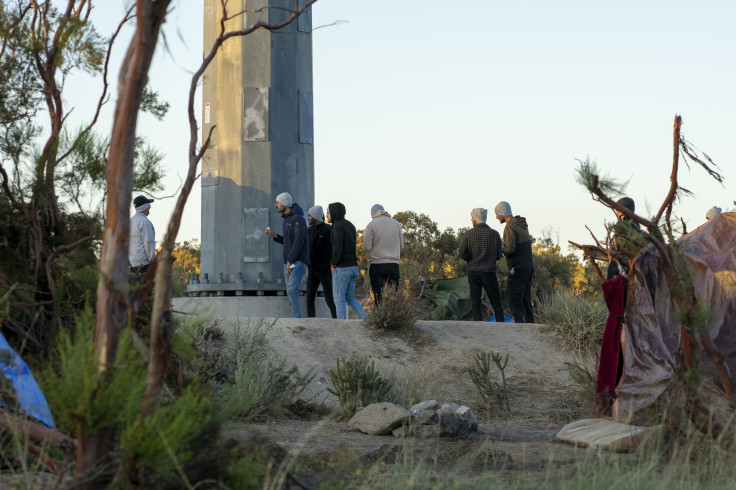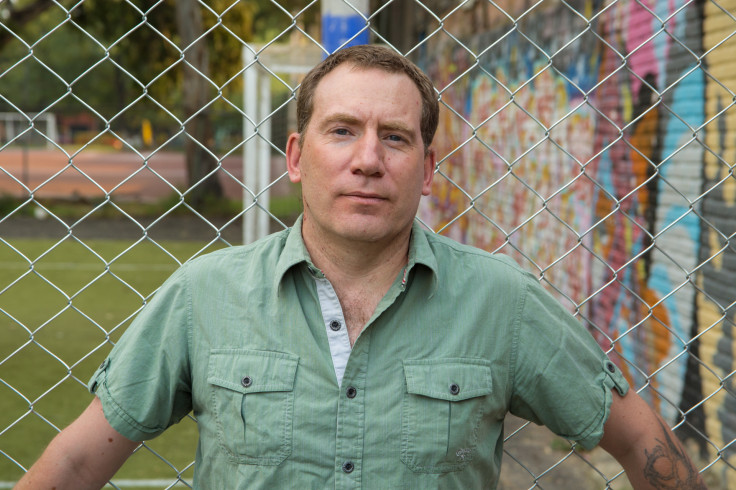
The migratory crisis taking place in the U.S. southern border has been at the centerstage of the country's political conversation this year, and the debate about how to best deal with it is set to increase in 2024 as the presidential elections loom large.
In this context, and with polls showing that most of the population favors more funding for border measures, The Latin Times talked to different experts to get their insights on how the situation affects the population closest to this phenomenon, both directly and indirectly.
Civil society experts, a journalist and a documentarist analyzed the situation at the border through their fields of expertise. These are the highlights:
Michelle Mittelstadt - Director of Communications and Public Affairs, Migration Policy Institute
An article from this organization highlighted that border funding proposed by President Joe Biden, included in a broader bill including aid for Ukraine and Israel, would allow for the implementation of "essential policy changes" that would strengthen the functioning of an immigration system that is "buckling under intense pressures."
Talking to The Latin Times, Mittelstadt highlighted the need to fund all the migration system, not only its "front end": that is, border patrol agents, fencing, infrastructure. "If you don't have the immigration judges, the asylum officers or the processing capacity to remove the people who are found not to have a reason to remain in the country, you end up with massive backlogs," she said.

Speaking about the characteristics of the migration flows, Mittelstadt said that "we are seeing more families, when between the 1970's and 1990's it was mostly Mexican men who crossed the border to work." "So we have a very different picture that doesn't match with the current system, and additional resources are needed to speed up the processing of cases for families and children," she said.
Overall, the official said, "what we've seen this year is that enforcement alone doesn't work." This has happened across Democratic and Republican administrations. It has happened even as resources allocated to border patrol agents and border walls continued to increase. I think there is a growing recognition that there is a very dynamic migration picture across the Western Hemisphere that is not going to end anytime soon. And because of this certain countries, not only the U.S., realized that there needs to be a regional approach to migration.
Kathleen Roche - Professor at George Washington University
Rhetoric about migrants from certain parts of society is having lasting negative effects in the mental health of Latino families living in the U.S., especially among children and adolescents growing up amid this messaging, according to Roche.
Backed by multiple studies throughout the years, Roche's research suggests that, for this demographic, "political rhetoric or policies to deport immigrants can compromise mental health, result in poor grades, and increase substance abuse and social problems lasting into adulthood."

So far, she said, evidence has shown her that "Latino teenagers report worrying about their future job and educational prospects because of the immigrant environment; avoid police or seeking medical care due to immigration threats; and report being warned by their parents to avoid authorities because of immigration authorities."
"Related to anti-immigrant rhetoric, our research shows that being discriminated against by teachers, classmates, and/or community members due to being Latino significantly predicts worse mental health and worse school performance over time," Roche said. She added that "actually experiencing the deportation or detention of a family member relates to a 2- to 3-fold higher risk of Latino/a adolescents' suicidal ideation, substance use, and clinically meaningful levels of outward-directed mental health problems such as aggression and conduct disorder."
Rodrigo Dorfman - Documentarist
Much of the conversation about migration focuses around an overwhelmed system and political infighting. Documentarist Rodrigo Dorfman has been producing content for years to show another side, one of empowerment and success, of settlement and a newfound sentiment of community.
The latest content to do so was Bulls and Saints, a coproduction by Latino Public Broadcasting which follows an undocumented family from North Carolina and their daily life, intertwining their routine within their community in North Carolina and their yearn to return their hometown, Cheran, in Mexico, after almost 20 years.
In an interview with Latin Times, Dorfman discussed the film's coming to be, its development and main takeaways. But also the broader subjects it covers: migration to the area he defines as the "Nuevo South" and their integration (or lack thereof) in the wider American society.
"If we don't tell our stories, 50 years from now, we're going to be like the Italians, who forgot most of their recipes. Not to insult them, that's just how the U.S. assimilates you into whiteness. That's the story and the question is can we as Latin Americans in the South find a different way to enter into the conversation of a more perfect union, especially with the 250th anniversary coming up in 2026," said Dorfman when asked about his motivation to continue producing these documentaries.
"I want people to have an experience of the Latino migration that is outside the major headlines, what I would call trauma and victimization. Deportations and kids in cages. They are important and necessary because they're true, but oftentimes we are reduced to victims and the richness of our experience is minimized, as well as our capacity for cultural empowerment."
Ioan Grillo - Journalist
English journalist Ioan Grillo has been based out of Mexico City for over 20 years, reporting on topics such as cartels, drug and human trafficking, firearm smuggling and immigration.
"What we see in this time is this massive escalation of violence, which is also the year that the Assault Rifle ban expired. That made it much easier to buy large quantities of AK-47s and AR-15s in the United States and bring them to Mexico," Grillo said. "What we saw in Mexico around this time was a change in the violence and the crime, from the kind of old school gang banger guys with shaved heads and tattoos often fighting with pistols or knives, into what some of us call paramilitary organized crime."

Grillo said that of all the murders in Mexico, about two-thirds are related to cartels, and about 70% of involved firearms manufactured in the U.S.
Grillo said for years, he knew that guns were smuggled from the U.S. to Mexico, but it wasn't until 2017 when he met an imprisoned man in Ciudad Juarez, he understood how so many guns were making it into Mexico. Newfound insight into the source of cartel firearms, Grillo said, inspired him to write his book, "Blood Gun Money," an investigative dive into how U.S. guns get into Mexico.
© 2023 Latin Times. All rights reserved. Do not reproduce without permission.







